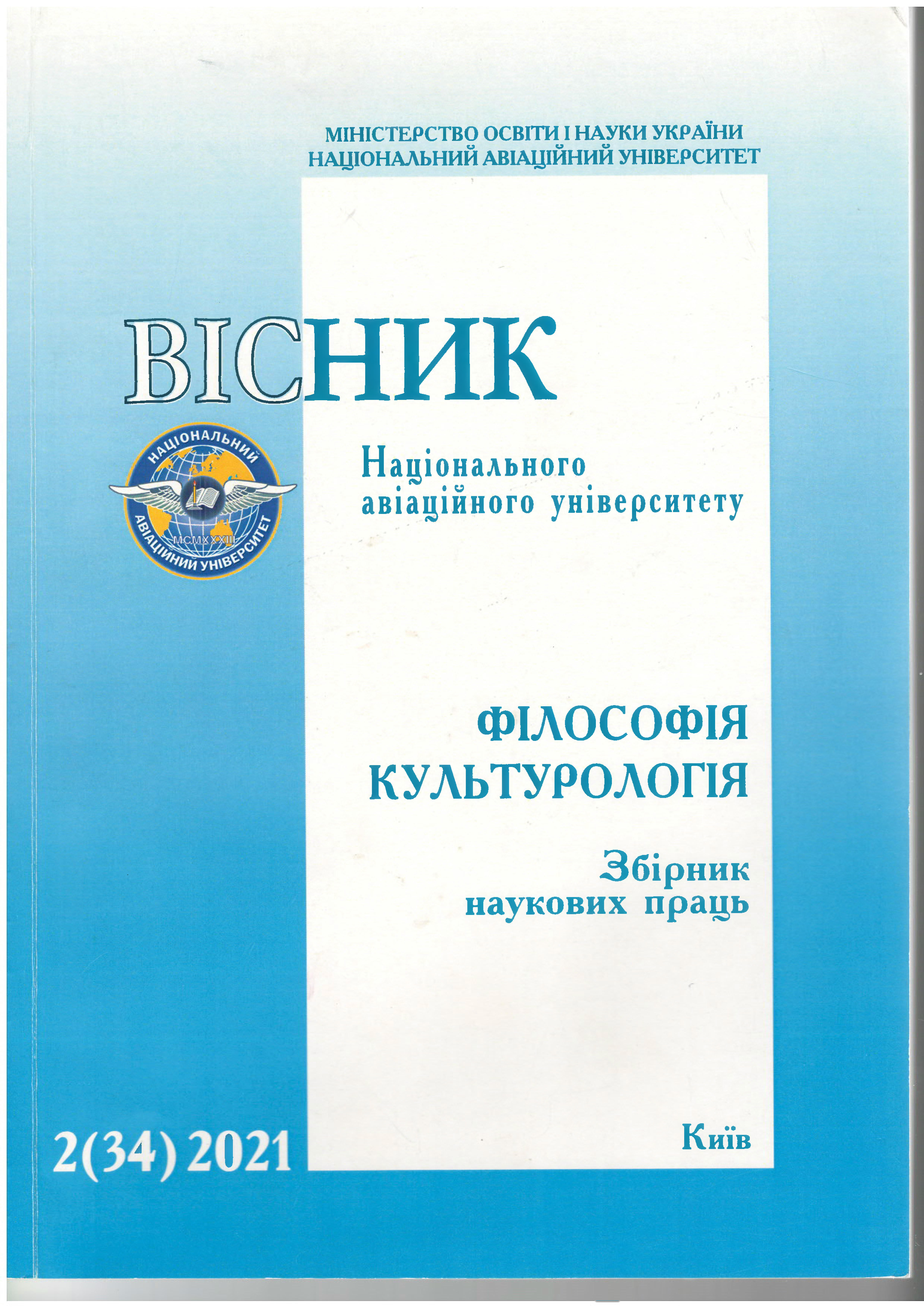THE SOCIO-CULTURAL ASPECT OF INFORMATION AND COMMUNICATION TECHNOLOGIES IMPLEMENTATION IN EDUCATION
DOI:
https://doi.org/10.18372/2412-2157.34.16334Keywords:
socio-cultural aspect, information society, information and communication technologies, educationAbstract
Introduction. In the era of the information society, the influence of information and communication technologies on education is
growing. With the rapid introduction of information and communication technologies in education, the ambiguity of the results of this
process actualizes their understanding in the socio-cultural aspect.The aim of the article is to comprehend the socio-cultural aspect
of information and communication technologies introduction in education. The tasks are to analyze works on features of introduction of
these technologies, to outline sociocultural problems which arise at their use. Research methods. The theoretical and methodological
basis of the study is general and special methods and approaches. The leading place is occupied with the socio-cultural approach, the
essence of which is to study education as a unity of culture and sociality in the context of social phenomena. Research results. Today,
the digitalization of education is recognized to be necessary. However, information and communication technologies are only a means,
not an end. They have both advantages and disadvantages in educational process. An important advantage is that when using them,
students learn the information and communication technologies that they will need further because of the global digitalization of all
spheres of life in the country and the world. Digitization can act as a factor of dehumanization and alienation. There may be a problem of
communication of people, a decline of culture. Communicative interaction of people being the basis of these technologies can have
devastating consequences for interpersonal relationships. Modern society is doomed to education using information and communication
technologies, but the goal of digitalization of education should be the realization of humanism. The humanization of society and
education is possible due to public and state support. Cultural and spiritual incentives for human activity should be guarantees of
increasing social status, the possibility of education, popularity. Discussion. The benefits of using information and communication
technologies are more convincing in theory than in practice. Often the ability of children to use these technologies is not taken intoaccount,
there is no individual approach to them. Conclusion. The functioning of modern education requires the use of information and
communication technologies. These technologies should be implemented in educational practice on humanistic socio-cultural principles.
References
Ашиток Н. І. Нова освітня реальність: дистанційна освіта у
вищій школі в умовах карантину / Н. І. Ашиток // Молодь і ринок. –
№ 3 (189). – 2021. – С.11-15.
Ашиток Н. І. Цифровізація дистанційного навчання в
Україні / Н. І. Ашиток // Вісник Національного авіаційного універ-
ситету. Серія: Філософія. Культурологія. – 2021 – № 1 (33) 2021.
– С. 85-88.
Дротянко Л. Г. Цифровий вимір сучасного етапу цивіліза-
ційного розвитку соціуму / Л. Г. Дротянко // Вісник Національного
авіаційного університету. Сер.: Філософія. Культурологія. – 2021.-
№ 1 (33). – С. 18-21.
Кравченко С. А. Цифровизация образования: риски
дегуманизации / С. А. Кравченко // Социология и общество:
традиции и инновации в социальном развитии регионов. Сбор-
ник докладов VI Всероссийского социологического конгресса. –
Москва: РОС; ФНИСЦ РАН, 2020. – С. 3179-3184.
Малышко А. А. Философские аспекты процессов
дистанционного образования / А. А. Малышко // Вестник МГТУ. –
Т. 10. – № 3. – 2007. – С. 394-398.
Маркузе Герберт. Одновимірна людина. Дослідження
ідеології розвинутого індустріального суспільства / Герберт
Маркузе // Сучасна зарубіжна соціальна філософія. Хрестоматія.
– К.: Либідь, 1996. – С. 87-134.
Моор П. К. Дистанционное образование: проблемы и
перспективы. Инновационные технологии в образовании /
П. К. Моор // Материалы IV Международной научно-практической
видеоконференции. – Тюмень: ТИУ, 2017. – С.115-117.
Світлична О. С. Інформаційно-комунікаційні технології
викладання дисциплін у вищих навчальних закладах /
О. С. Світлична, О. М. Гончаренко // Науково-методичні
засади розвитку сучасної економічної освіти: матеріали
науково-методична конференція професорсько-викладацького
складу. – Одеса: ОНЕУ, 2014. – Режим доступу: http://dspace.oneu.
edu.ua /jspui/ bitstream/.pdf
Соколова, И. В. Социальная информатика / И. В. Соколова.
– М.: МГСУ, 2002. – 256 с.
Цифровой мир будущего: тренды и новые возможности в
сфере образования. – Режим доступу: https://nv.ua/project/cifroviysvit-
maybutnogo-trendi-ta-novi-mozhlivosti-v-sferi-osviti-50120541.html
Швець Д. Є. Соціокультурні аспекти інформатизації вищої
освіти / Д. Є. Швець. – Режим доступу: http://www.disslib.org
/sotsiokulturni-aspekty-informatyzatsiyi-vyshchoyi-osvity.html
Information and communications technology. Wikipedia.
URL: https://en.wikipedia.org/wiki/Information_and_communications
_technology/


